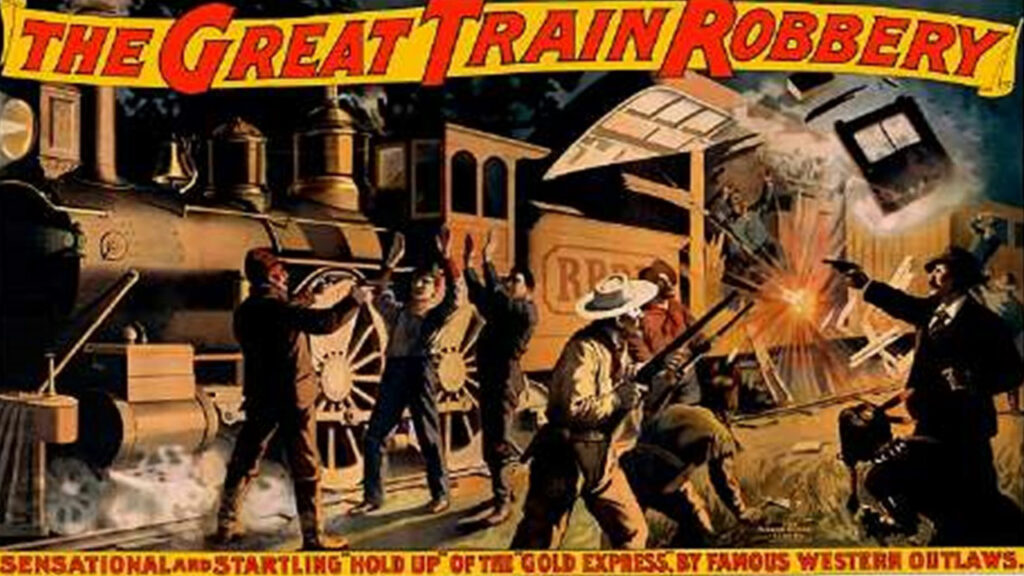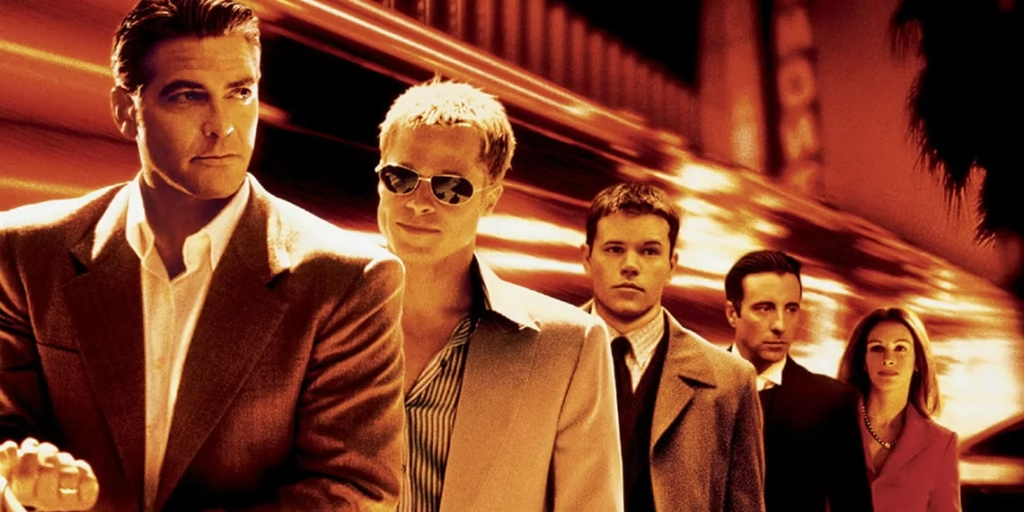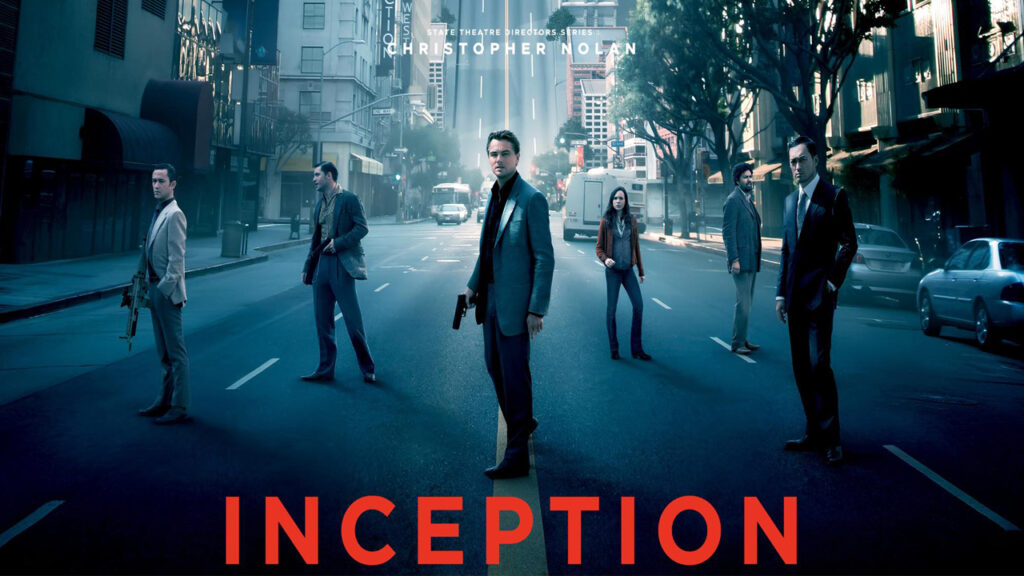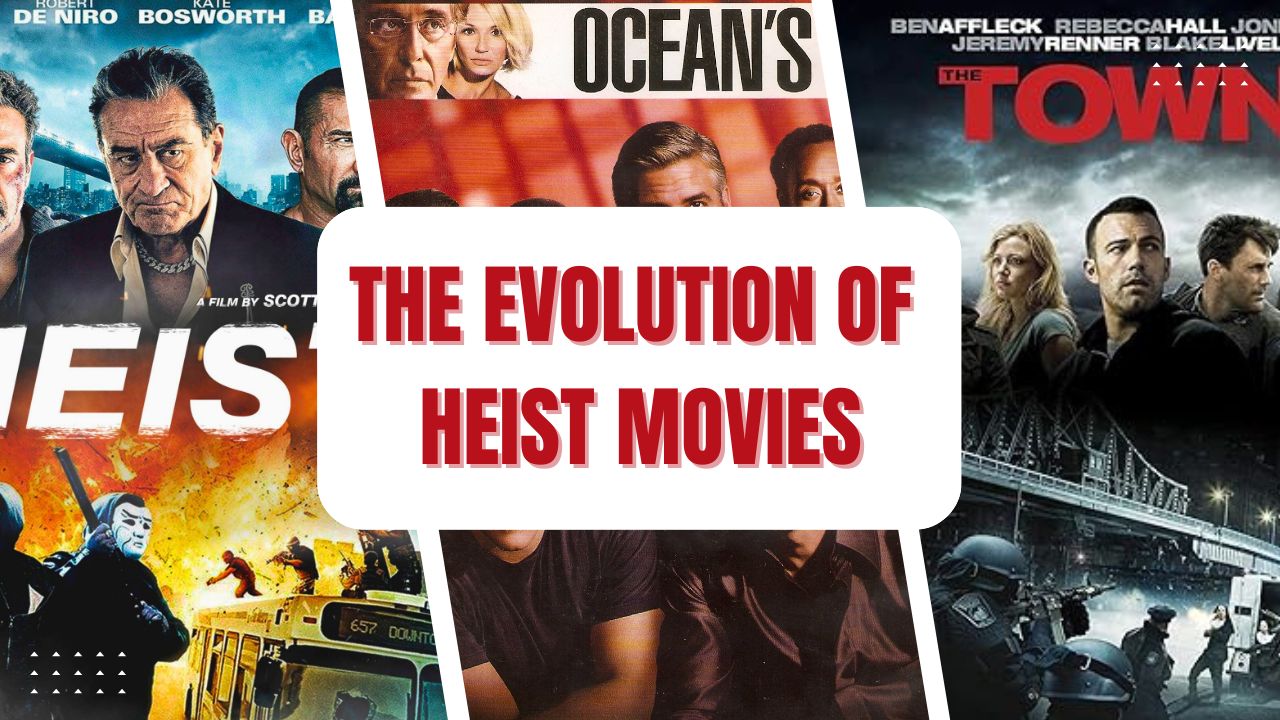The heist movie has long been a favorite in the world of cinema, captivating audiences with tales of cunning criminals, intricate plans, and high-stakes drama. From the silent era to modern thrillers, the genre has evolved in fascinating ways, reflecting changing societal values and cinematic trends. Let’s dive into the rich history of heist movies, explore their cultural impact, and discover what makes them so enduring.
The Birth of the Heist Film: Foundations in Classic Cinema

The origins of the heist movie can be traced back to early 20th-century cinema. Silent films like The Great Train Robbery (1903) laid the groundwork, combining suspense and action in a groundbreaking way. This film, often considered the first Western, also marked the beginning of crime capers on screen.
By the 1950s, heist films had solidified their place in Hollywood. Classics like Rififi (1955) introduced intricate planning and execution sequences, complete with a 30-minute silent robbery scene that became iconic for its tension and realism. This era set the standard for the genre’s structure: assembling a crew, planning the job, executing the heist, and dealing with the inevitable fallout.
Cultural Impact of the Early Heist Films
Films like Rififi and The Asphalt Jungle (1950) not only entertained but also reflected post-war anxieties about trust, betrayal, and societal disillusionment. These movies presented crime as a desperate, sometimes sympathetic act, drawing audiences into the moral gray areas of their protagonists.
The Golden Age: Style Meets Sophistication (1960s-1980s)
The 1960s ushered in a new era of heist films, where charm and style became key elements. Movies like The Italian Job (1969) and Topkapi (1964) added a dose of humor and panache, contrasting the grim seriousness of their predecessors. Meanwhile, The Thomas Crown Affair (1968) introduced a romantic angle, blending high-stakes crime with a love story.
During the 1970s and 1980s, directors like Michael Mann began to infuse heist films with psychological depth. Thief (1981), for example, focused on the personal struggles of its lead character, a professional safecracker torn between his criminal life and dreams of normalcy.
Modern Thrillers: Complexity and Realism (1990s-Present)

Modern heist movies have taken the genre to new heights, blending traditional elements with contemporary themes and innovative storytelling techniques. Quentin Tarantino’s Reservoir Dogs (1992) turned the genre on its head by focusing on the aftermath of a botched heist rather than the act itself. Steven Soderbergh’s Ocean’s Eleven (2001) revived the ensemble heist movie, showcasing a star-studded cast and slick production.
Christopher Nolan’s Inception (2010) pushed the boundaries further, transforming the concept of a heist into a mind-bending journey through dreams. This innovation highlighted how the genre could be reimagined while staying true to its roots.
Thematic Evolution: What Makes Heist Movies Timeless?
1. Morality and Ambiguity
Heist films often blur the lines between right and wrong. Protagonists are rarely pure villains; they are complex characters driven by desperation, revenge, or ambition. This ambiguity allows audiences to root for the “bad guys” while questioning societal norms.
2. Team Dynamics
A key feature of the heist genre is the assembly of a diverse crew, each with unique skills. From hackers to safecrackers, these characters bring humor, tension, and humanity to the story.
3. High-Stakes Drama
Whether it’s stealing millions or pulling off an impossible job, heist movies thrive on tension. The intricate plans and inevitable complications keep audiences on the edge of their seats.
Spotlight on Iconic Heist Films

Rififi (1955)
Renowned for its meticulous planning scenes and moral complexity, Rififi set the gold standard for heist films.
Heat (1995)
Michael Mann’s Heat is celebrated for its realistic portrayal of criminal life and its iconic shootout scene, which influenced action filmmaking for decades.
Inception (2010)
Nolan’s innovative approach to the genre redefined what a heist movie could be, combining sci-fi elements with psychological depth.
Unique Insights: Why Heist Movies Resonate Across Generations
- Reflection of Society: Heist films mirror societal changes, from post-war struggles to modern-day anxieties about technology and surveillance.
- The Underdog Appeal: Audiences love rooting for clever criminals who outsmart the system, tapping into a universal desire for rebellion and justice.
- Visual Spectacle: Elaborate set pieces and high-stakes action sequences make heist films some of the most visually stunning in cinema.
Future of the Genre
As technology advances, heist films are likely to explore cybercrime and digital heists, reflecting the increasing role of technology in our lives. Additionally, the rise of international cinema may bring diverse cultural perspectives to the genre, offering fresh takes on familiar tropes.
FAQs
1. What defines a heist movie?
A heist movie revolves around the planning, execution, and aftermath of a theft, often focusing on the dynamics of the crew and the moral complexities of their actions.
2. What are some must-watch heist movies?
Essential films include Rififi (1955), Heat (1995), The Italian Job (1969), Inception (2010), and Ocean’s Eleven (2001).
3. Are heist movies based on true events?
Some, like The Bank Job (2008), draw inspiration from real-life heists, while others are purely fictional.
4. Why do audiences love heist movies?
The combination of suspense, clever planning, and moral ambiguity makes heist movies endlessly entertaining and thought-provoking.

Conclusion
The heist movie genre continues to captivate audiences by blending suspense, innovation, and character-driven storytelling. From the gritty realism of Heat to the cerebral complexity of Inception, these films offer a unique lens through which we can explore human ambition, morality, and resilience. With its rich history and boundless potential, the heist genre is poised to remain a cinematic favorite for generations to come.

